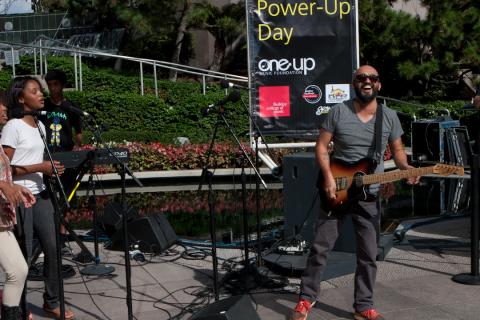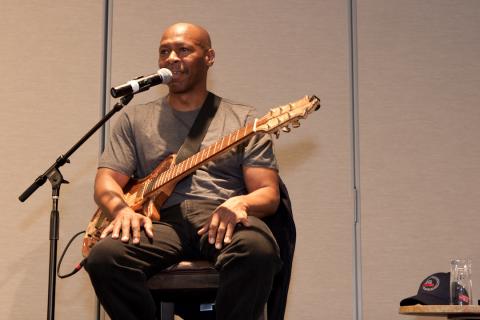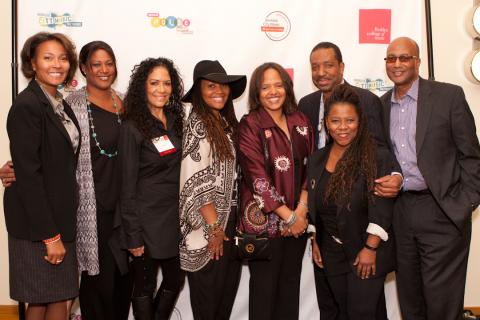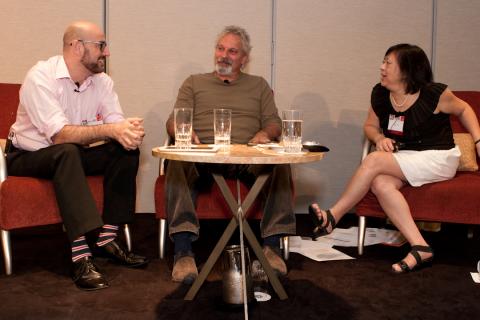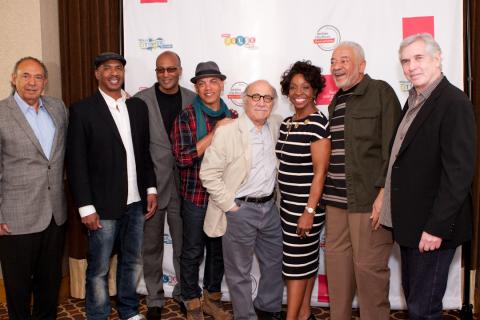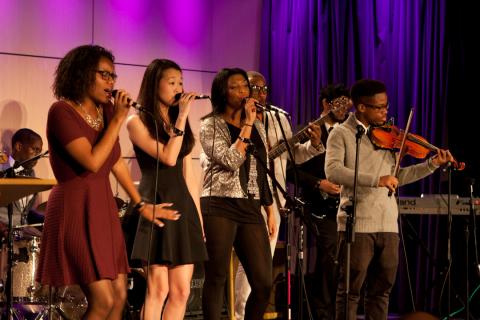The 4th annual Berklee City Music Network Conference explored the changing role of American popular music in education today.
In West Africa, the local oral historian who passes down tradition through storytelling and poetry, called a griot, is so invaluable that he occupies a revered space in society. J. Curtis Warner Jr., founder and executive director of Berklee City Music, explained that like the griot, today’s music educators perform an essential social task: passing on musical knowledge and history to the next generation of artists.
It was in this spirit that the 48 organizations from the United States and Canada that compose the Berklee City Music Network gathered in Los Angeles from November 2 to 5 for the fourth annual
Berklee City Music Network Conference. It was an opportunity for these groups, which use contemporary music to educate and empower youth from underserved communities, to connect with arts advocates and industry and education leaders to discuss the changing role of American popular music in education today.
The conference kicked off with Youth Power-Up Day, a free outdoor festival at Grand Performances in downtown LA that featured youth ensembles from around the country, a drum circle hosted by percussion instrument company Remo, and a jam session led by former Tonight Show Band leader Kevin Eubanks.
The next three days were full of inspiring presentations, panel discussions, and interactive activities. Two of the more popular sessions were panel discussions led by Berklee faculty member Terri Lyne Carrington and music industry master Ron Weisner. Carrington's session featured Sheila E, Patrice Rushen, Lalah Hathaway, and Donald Harrison, who all shared their wisdom on training and motivating young musicians.
Weisner welcomed an all-star panel consisting of Bill Withers, Gladys Knight, Bobby Colomby, Tommy LiPuma, Ray Chew, and Ricky Minor. These industry veterans discussed the changing landscape of the music industry and the important role teachers and mentors played in their own lives. Withers cautioned that not everyone with a passion for music should enter the music industry, and encouraged teachers to nurture a student’s talent while helping him or her determine the best route for that passion.
Each day started with a professional development workshop. Facilitator Libby Chiu, former chief of staff and senior advisor for learning at the Illinois Arts Council, said that discovery was her main goal in these discussions, and one she feels she accomplished.
“As I observed members participate in the interactive activities woven into each morning, I noticed an intense concentration descend on each of them, whoops of delight, some frowning, and quite a few ‘I had no idea’ moments of discovery,” Chiu said.
Workshop presenters included Jonathan Zeichner, executive director of A Place Called Home; Andrew Davis, founder and president of the Music Empowers Foundation and a BCMN advisory board member; and youth ambassadors from A Place Called Home.
Educators were also treated to a panel discussion with arts education leaders Charly Schwartz, Bob Smiland, Myka Miller, Tony White, and Mark Slavkin; tours of local network sites and partners; a jam session for conference attendees and local Berklee alumni; a number of compelling presentations by network members; and a surprise visit by the John Lennon Educational Bus Tour.
For students, a conference highlight was a master class at the Grammy Museum. Guest artists Ashley Rodriguez, Kenny Lattimore, Shoshana Bean, Steve Bailey, and Courtney Harrell coached student bands from five Berklee City Music sites. Students performed later that night, with cameo appearances by Hathaway, Harrison, and Lattimore. The evening also included a sneak peek of filmmaker Martin Shore’s movie Take Me to the River, which explores the musical history of Memphis and the Mississippi Delta.
Through four days of thought-provoking sessions and performances, the conference set out to educate and inspire music teachers from across North America to not only become more effective in their work with young musicians, but, like the griots of West Africa, to grow in their indispensable roles as special sources of discovery, knowledge, and guidance.

